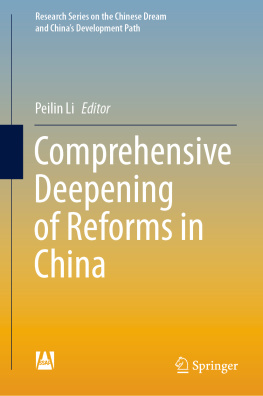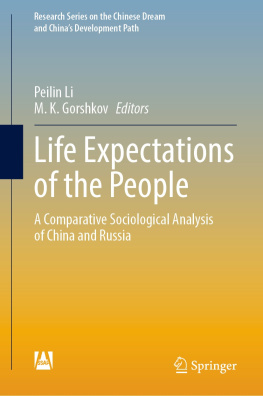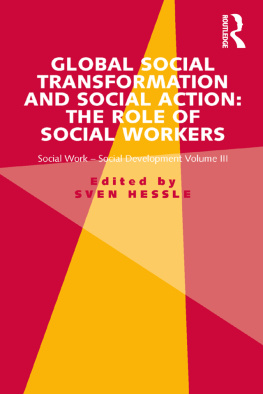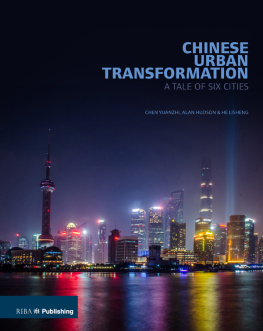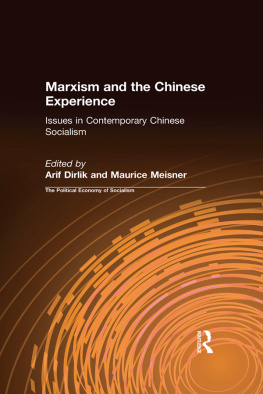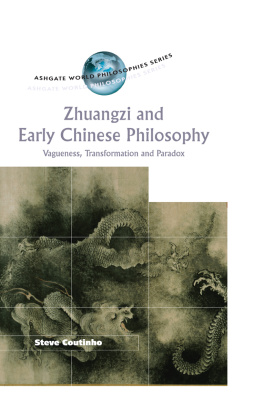Social Transformation and Chinese Experience
Chinas success in economic growth and its exploration in political reform in the past few decades have attracted attention from worldwide economic and political experts. This book studies Chinas transformation and experience from a sociological perspective, which broadens the research horizons and explores more complexity in contemporary China.
This book examines Chinas social structural transformation, especially its implications on resource allocation, and expounds on Chinas sociology academic history. In addition, it covers a broad range of issues including Chinas experience with reform and development, urbanization, social hierarchy change, social conflicts, social management, and mass consumption. Lastly, it investigates Chinas urban village as a byproduct of economic development and urbanization, which is rarely seen in other countries. These themes are key to understanding contemporary Chinese society, which makes this book a valuable reference for specialists on Chinese studies and those who are interested in contemporary China.
Peilin Li is a professor of sociology and vice president of Chinese Academy of Social Sciences. His research interests include social development, social structure, and social policies. He has published and edited hundreds of articles, books, and essay collections in Chinese, English, and French.
China Perspectives series
The China Perspectives series focuses on translating and publishing works by leading Chinese scholars writing about both global topics and China-related themes. It covers Humanities and Social Sciences, Education, Media, and Psychology, as well as many interdisciplinary themes.
This is the first time any of these books have been published in English for international readers. The series aims to put forward a Chinese perspective, give insights into cutting-edge academic thinking in China, and inspire researchers globally.
For more information, please visit https://www.routledge.com/series/CPH.
Social Transformation and Chinese Experience
Peilin Li
Forthcoming titles
Chinas Low Birth-Rate and the Development of Population
Zhigang Guo, Feng Wang, Yong Cai
The Living Conditions and Succor Mechanism of the Urban Underclass in China
Li Zhu, Feifei Mao
Contemporary China Social Structure and Hierarchy
Xueyi Lu
Contemporary China Social Construction and Development
Xueyi Lu
First published 2017
Translator: Yujie Chen
by Routledge
2 Park Square, Milton Park, Abingdon, Oxon OX14 4RN
and by Routledge
711 Third Avenue, New York, NY 10017
Routledge is an imprint of the Taylor & Francis Group, an informa business
2017 Peilin Li
The right of Peilin Li to be identified as author of this work has been asserted by him in accordance with sections 77 and 78 of the Copyright, Designs and Patents Act 1988.
All rights reserved. No part of this book may be reprinted or reproduced or utilised in any form or by any electronic, mechanical, or other means, now known or hereafter invented, including photocopying and recording, or in any information storage or retrieval system, without permission in writing from the publishers.
Trademark notice: Product or corporate names may be trademarks or registered trademarks, and are used only for identification and explanation without intent to infringe.
British Library Cataloguing-in-Publication Data
A catalogue record for this book is available from the British Library
Library of Congress Cataloging-in-Publication Data
A catalog record for this book has been requested
ISBN: 978-1-138-89959-9 (hbk)
ISBN: 978-1-315-70775-4 (ebk)
Typeset in Times New Roman
by Apex CoVantage, LLC
This book is a collection of evidence-based studies funded by the Innovation Program of the Chinese Academy of Social Sciences (CASS). It contains my experience regarding both the practices and the theoretical studies of Chinas social transformation.
Here I would like to express my sincere gratitude to Ms. Chen Yujie, the translator of this book, for her painstaking efforts devoted to the book; I also thank all of the colleagues at China Social Sciences Press for their professional and energetic support.
My particular thanks goes to the CASS Innovation Translation Fund for having the book published.
June 2016
1
Another invisible hand
More than ten years after Chinas economic reforms, China is at the new threshold of the structural transformations of the society. Transformations are evident in Chinas transition from a self-sufficient and semi-self-sufficient product economy to a planned commercial economy, in the emergence of an industrialized China from an agricultural society, in turning a predominantly rural society into an urban society, in the evolution from a closed and semiclosed society to an open society, and the list continues (Lu & Li, 1999). This chapter attempts to elaborate on the theories regarding the structural transformation of the society.
It is commonly accepted that there are two hands at play for allocating Chinese resources and boosting Chinese economic development. Namely, they are the visible hand of the state intervention and the invisible hand of the market regulation. In fact, since China is currently at the stage of structural transformation and Chinese economy is in an unbalanced state (broadly defined); there remains a third, invisible hand: the structural transformation of the society. When a society is at the stage of transformation, the structural transformation, in a sense, is an invisible and enormous power that by its own rules sets the trend and directions for social development and resource allocations. This type of invisible and enormous power cannot be exhausted by the categories of state intervention or market regulation. The power of socially structural transformation is a potential driving force for the development, even more so and more salient for the transition from the old social system to the new.
Conceptualize the social transformation
Social transformation is a holistic development
When people describe the modernization of a nation state, the terms growth and development are often used alternately. On most of the occasions, they are interchangeable. However, there are fundamental distinctions in these two concepts that represent two different outlooks on development.
Economic growth refers to an increase in the gross national product (GNP) or national income. Economic growth can simply mean an increase in the ratio of national product output and labor force to population growth. In the post-WWII era, the world has entered a relatively peaceful time of development. As a majority of countries shifted their focus to economic growth, an economic-centered perspective dominated the outlook on development. This is what we now call traditional development strategy the one that is centered on quantitative growth in GNP or national income. Influential theories such as the Harrod-Domar model, Joan Robinsons growth model, vicious circle of poverty, and theory of the big push took shape in this period of time. The United Nations (UN) has set the basic objective for the least developed countries in the first United Nations Development Decade (19601970) to grow their GNP at a rate no less than 6 percent. The Pearson Report to the World Bank in 1969 and proposals for the Second United Nations Development Decade in 1970 (known as Tinbergen Report) were emblematic of the traditional development outlook. The traditional development outlook holds economic growth as the expressway to social development. The more the economy grows, it reasons, the more surpluses are available for distribution so that poverty can be eliminated. Moreover, after the collapse of colonialism, Western developed countries attempted to maintain their control over raw material supplies from their prior colonies, which were also commodity markets for the former. For this reason, Western developed countries strove to incorporate the Third World into the orbit of the capitalistic economy, with the hope that their economic prosperity would be a convincing demonstration of the developmental model. It was against this backdrop that the hype of economic growth became prominent in Western theories, news coverage, broadcasting, and political addresses in the decades of the 1950s and 1960s.



